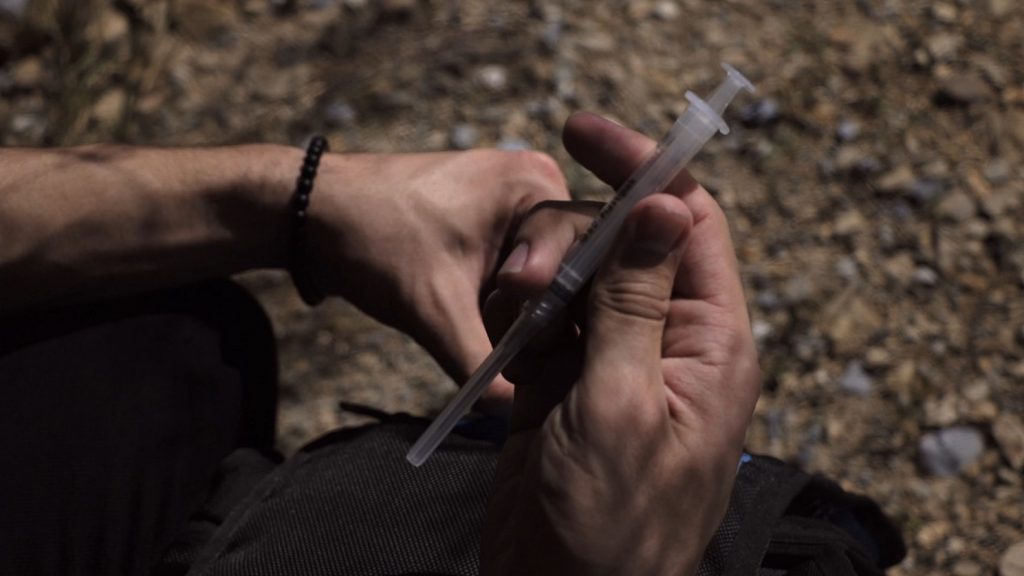Glasgow sees worst HIV epidemic in over 30 years in Britain
Research suggests that there has been a 10-fold increase in HIV infections amongst drugs users in Glasgow. Britain has not suffered an outbreak of this scale since the 1980s and the epidemic is not being contained. With few places to get clean injecting kits, drug users are resorting to sharing needles. Even though Glasgow’s NHS has introduced needle exchange points to reach addicts on the streets, the virus is still rapidly spreading.

Before this, HIV prevalence had been low and stable within this population after Edinburgh and Dundee saw major outbreaks in the 1980s. To put statistics into context, seven years ago only 1% of those who inject drugs were diagnosed with HIV in Glasgow. Now, it is more than 10%.
Another contributing factor to the HIV epidemic in Glasgow is the recent influx of cheap, high grade cocaine which is being injected. Whereas heroin users usually need to inject only a couple of times a day, cocaine users are needing it more frequently – with some injecting every couple of hours. This is contributing to the rapid transmission of HIV amongst the Glasgow population of injecting drug users.
A sigh of relief cannot be taken by those who do not inject drugs. You are still at risk of HIV if you engage in risky sexual activities. In the UK, most cases of HIV are caused by unprotected vaginal and anal sex with someone who is infected.
HIV resides in the blood and some other bodily fluids. This includes:
- Semen
- Vaginal fluid
- Menstrual blood
- The lining inside the anus
To catch HIV, you must be exposed to the virus in a way that enables it to enter your blood stream. For example, infection may occur if the virus enters your system through cuts or small tears that may not be obvious to the naked eye.
Symptoms are not always present; you can still pass on HIV if you are not experiencing any signs of infection and the virus can be transmitted more easily in the weeks following initial infection. Appropriate and consistent HIV treatment significantly reduces the chances of transmission. Recent advances in anti-retroviral treatments mean that when taken appropriately, the viral load in the blood can be reduced to undetectable levels, reducing that person’s ability to infect others to zero.
If you believe you are at risk of HIV, or are worried that you have been exposed to the virus, you should get tested as soon as possible. Early detection and treatment are the most effective way to combat HIV. Populations that are at a higher risk of catching HIV include:
- People who inject drugs and share equipment
- Men who have sex with men
- Those who engage in chemsex (using drugs to help or enhance sex)
- Women who have sex with men who have sex with men
- Those who have sex with someone who has injected drugs and shared drug taking equipment
- Those diagnosed with another sexually transmitted infection
The best way to keep yourself safe from HIV infection is to always use a condom when having sex. Just because you don’t inject drugs doesn’t mean you are safe from infection. If you do inject drugs then under no circumstances should you share needles, syringes or any other piece of equipment that has been used by another person. Remember that the HIV virus lives in the blood and body fluids so to keep yourself as safe as possible, don’t let any of these enter your own body.
Mike Asher, Co-Founder of Better2Know
Sources
[1] BBC: Cocaine injecting and homelessness ‘behind Glasgow HIV rise’
[2] ITV: Glasgow suffers Britain’s worst HIV epidemic in over 30 years
[3] NHS: HIV and AIDS – Causes
Categories
- Awards
- Bacterial Vaginosis
- Blood Tests
- Cardiovascular Health
- Cervical Cancer
- Chlamydia
- Condoms
- Covid-19
- Gardnerella
- Genital Warts
- Gonorrhoea
- Health and Wellness
- Hepatitis A
- Hepatitis B
- Hepatitis C
- Herpes
- HIV
- HIV (AIDS)
- Home Testing
- HPV
- Instant Testing
- MSM
- Mycoplasma
- News
- Non-Specific Urethritis
- PAP Smear
- Pre-Pregnancy
- Sexual Health
- STD Symptoms
- STD Tests and Screens
- STI Transmission
- Stigma
- STIs
- Swab Tests
- Syphilis
- Trichomonas
- Ureaplasma
- WSW
- Zika
